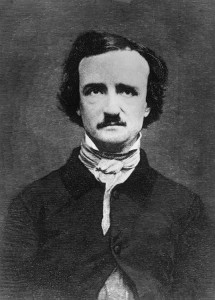Edgar Allan Poe
Friday, January 18th, 2019January 18, 2019
Tomorrow, January 19, marks 210 years since the birth of American poet, short-story writer, and literary critic Edgar Allan Poe in 1809. Poe’s stormy personal life and his haunting poems and stories combined to make him one of the most famous figures in American literary history.
Poe’s influence on literature was immense. His short story “The Murders in the Rue Morgue” (1841) is considered the first modern detective story. His reviews of American novelist Nathaniel Hawthorne mark him as the first significant theorist of the modern short story. His poetry and his stories of terror are among the most influential in modern literature. Writers as diverse as the Scottish writer Robert Louis Stevenson and Russian author Fyodor Dostoevsky have used Poe’s stories to launch their own fictional experiments.

Edgar Allan Poe National Historic Site in Philadelphia includes the house where the American author lived in 1843 and 1844. Credit: National Park Service
Poe worked as an editor and contributor to several magazines. He unsuccessfully tried to found and edit his own magazine, which would have granted him financial security and artistic control in what he considered a hostile literary marketplace. His famous works include the short stories “The Fall of the House of Usher,” “The Gold Bug,” and “The Cask of Amontillado.” His poem “The Raven” is one of the most famous works in American literature.
Poe was born in Boston, Massachusetts. He lived parts of his life there and in Richmond, Virginia; the United Kingdom; New York City; Philadelphia; and in Baltimore, Maryland, where he died on Oct. 3, 1849. The cause of his death was listed as “congestion of the brain,” though the precise circumstances of his death have never been fully explained.



